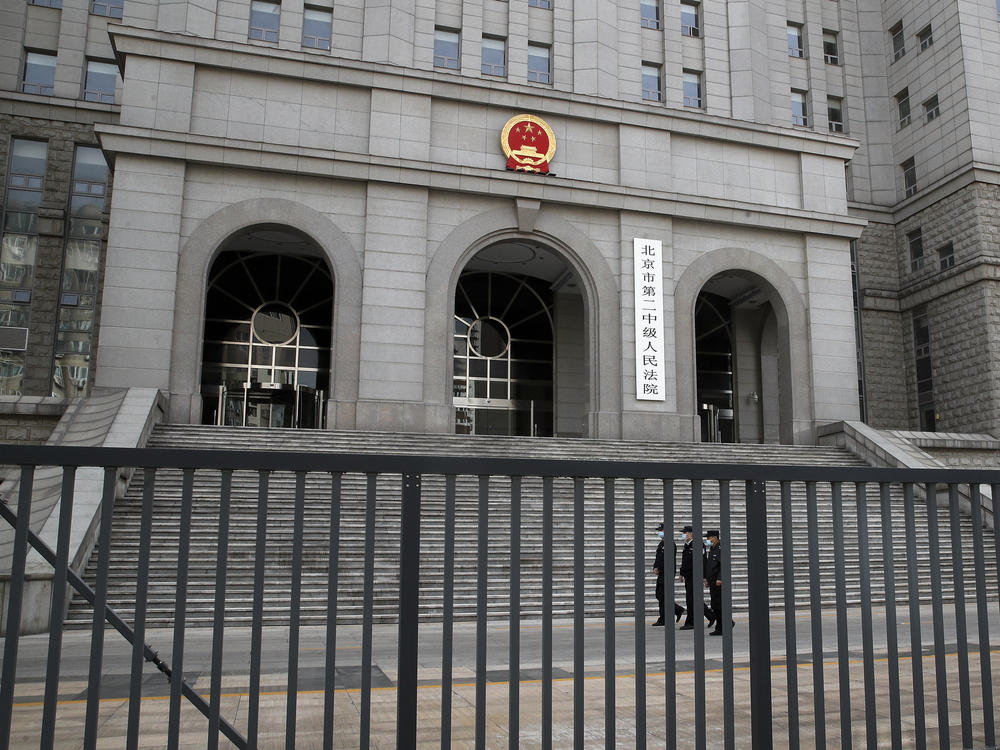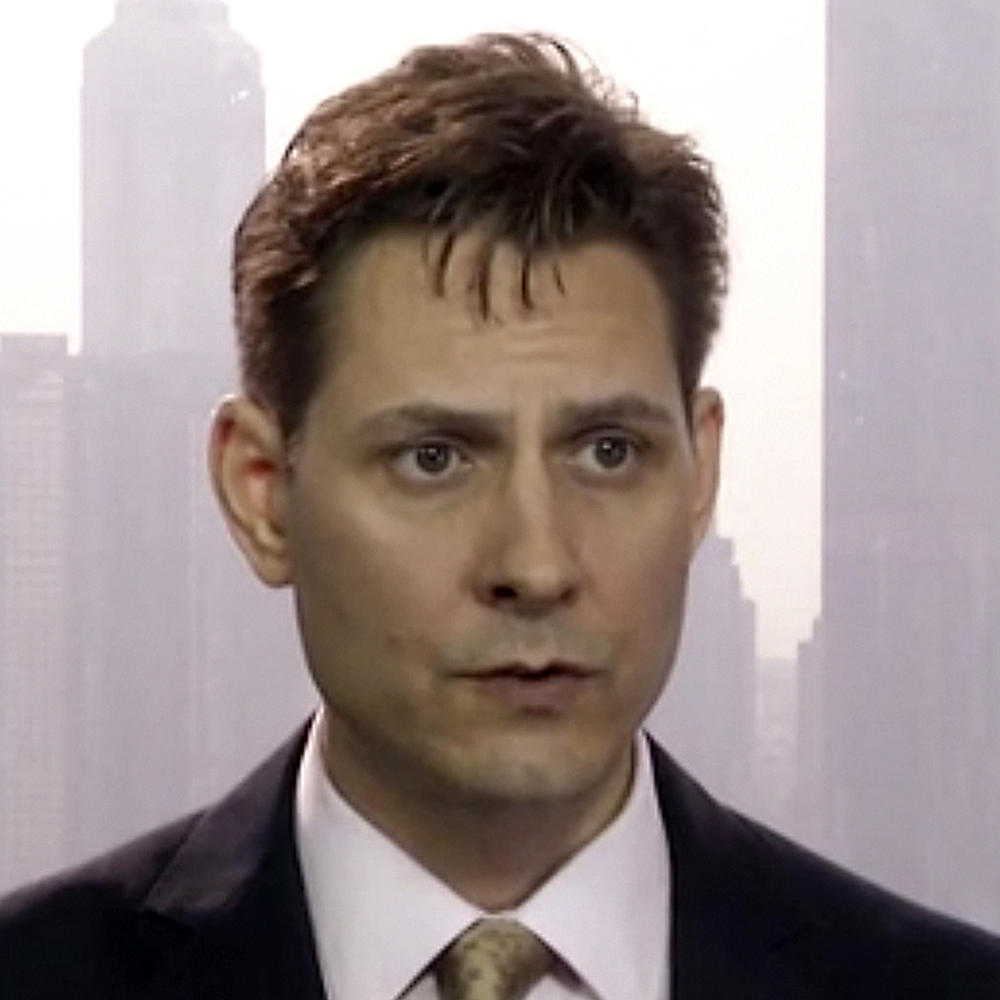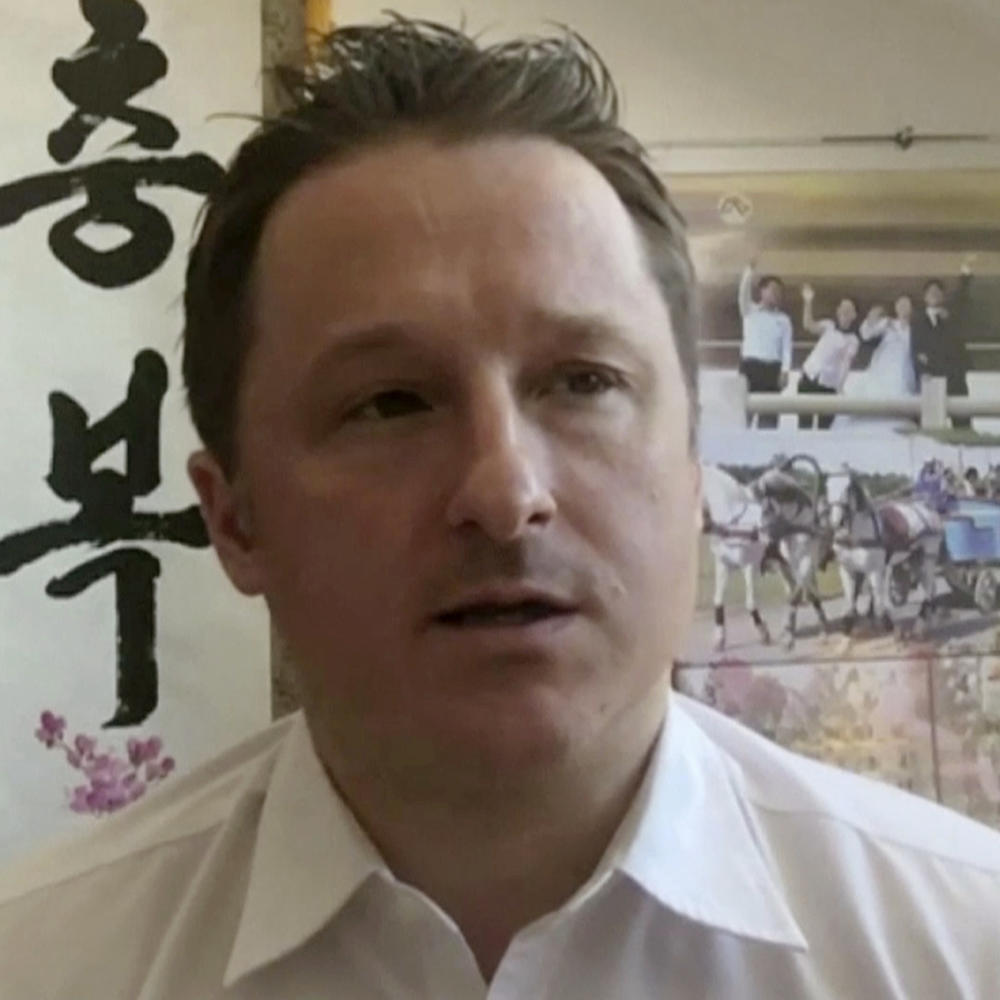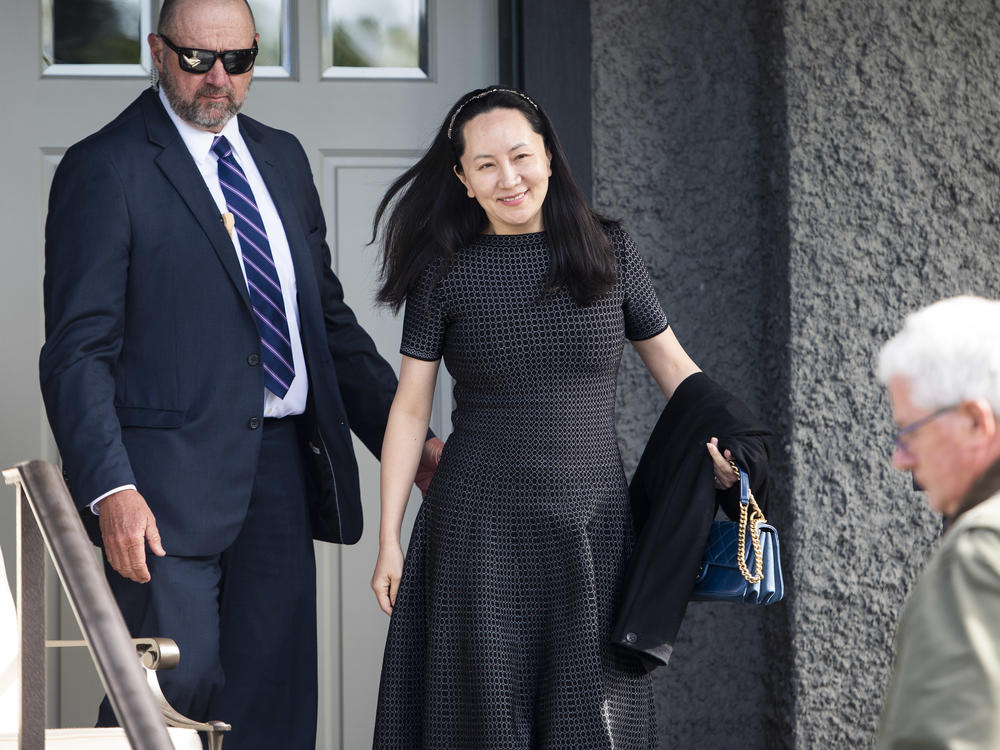Section Branding
Header Content
China Puts 2nd Canadian On Trial For Espionage And Bars Spectators
Primary Content
BEIJING - After more than two years in detention, former Canadian diplomat Michael Kovrig was put on trial in Beijing for espionage Monday in a case criticized by diplomats and international legal experts as an exercise in hostage diplomacy and for contravening international law.
Kovrig's trial ended without a verdict being announced.
"This is completely unacceptable as is the lack of transparency in these court proceedings," said Jim Nickel, Canada's top diplomat in China. Nickel was among 28 diplomats from 26 countries who were barred from attending Kovrig's trial, despite repeated requests for access.
A Beijing court spokesperson said Kovrig's trial would happen in a closed courtroom because the case touched upon "national secrets."
However, an agreement signed by Canada and China in 1999 explicitly states a consular official can attend such trials. Canadian diplomats also say they have not been granted regular consular access to Michael Spavor, a Canadian businessman also on trial in China for espionage.
Kovrig and Spavor have been held in two separate northern Chinese prisons since December 2018. Such consular visits are guaranteed under the Vienna Convention, an international treaty that oversees diplomatic relations and to which Canada and China are both members.
The two Canadians were arrested shortly after Canada, at the request of the U.S., arrested Meng Wanzhou, chief financial officer for Chinese telecom firm Huawei. The U.S. is seeking to extradite her to face charges of committing bank fraud while allegedly trying to circumvent American sanctions on Iran.
Nickel said the Canadian Embassy had not been granted consular access to Kovrig before the trial. The embassy has also not been told which lawyers are representing Kovrig and Spavor in court.
"We remain deeply concerned at the lack of minimum procedures and protections granted to the two Canadian citizens during their two years of arbitrary detention," said William Klein, acting deputy chief of mission at the U.S. Embassy in Beijing. He spoke outside the Beijing courthouse where Kovrig was tried Monday morning.
China said the diplomats trying to attend Kovrig's trial had interfered with its judicial sovereignty.
"Canada gathered some embassy staff and meddled in the individual case of a Canadian citizen handled in accordance with Chinese law," Hua Chunying, a Chinese foreign ministry spokesperson told NPR today. "We advise Canada that its scheme to gang on up China will never succeed."
Kovrig and Spavor were both arrested on Dec. 10, 2018, nine days after Meng's arrest while she was transiting through a Canadian airport.
China's courts have a 99% conviction rate, and the espionage charges Spavor and Kovrig face carry a maximum sentence of life in prison and even the death penalty.
Last Friday, Spavor had a closed trial in the Chinese city of Dandong, along the country's border with North Korea. He is accused of being an intelligence source for Kovrig. Canadian diplomats were similarly barred from attending his trial, which ended after about two hours without a verdict.
Meng, the daughter of Huawei's founder Ren Zhengfei, is being held under house arrest in a Vancouver, B.C., mansion as she faces her last round of Canadian extradition hearings.
Legal observers say the cases of Michael Kovrig and Michael Spavor are an alarming instance of hostage diplomacy.
"This is really about the two Michaels being geopolitical pawns, not just between Canada and China, but also the U.S., for being the country that has requested the extradition of Meng," said Margaret Lewis, an international law professor at Seton Hall University. "We're all going to be watching what happens not just in Beijing, but in the courtroom in Vancouver."
Chinese officials have themselves suggested the two cases are linked to Meng's detention in Canada.
"Even if it is a judicial case as the Canadian side claims, the Canadian justice minister has the authority to stop the extradition process [for Meng Wanzhou] at any point," Zhao Lijian, a Chinese foreign ministry spokesperson said last June, the month the two Canadians were officially charged with espionage. "Such options are within the rule of law and could open up space for resolution to the situation of the two Canadians."
Amy Cheng in Beijing contributed research.
Copyright 2021 NPR. To see more, visit https://www.npr.org.




